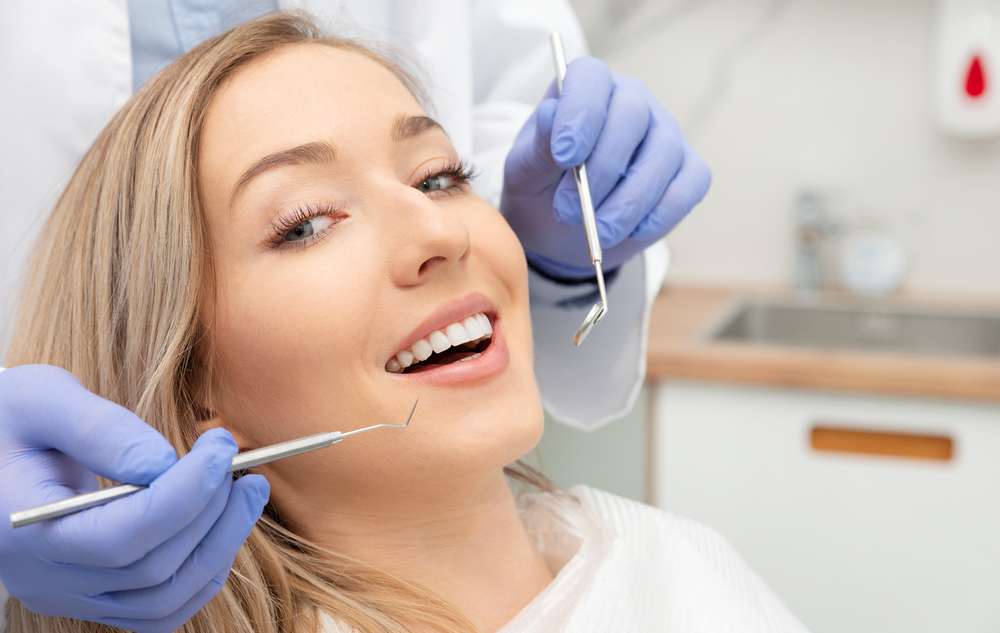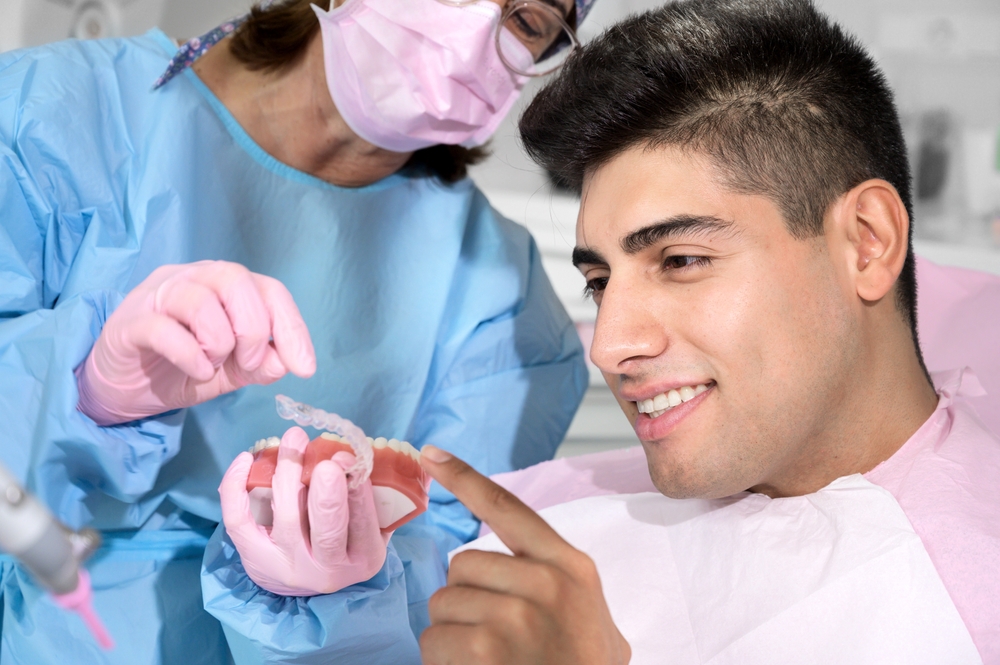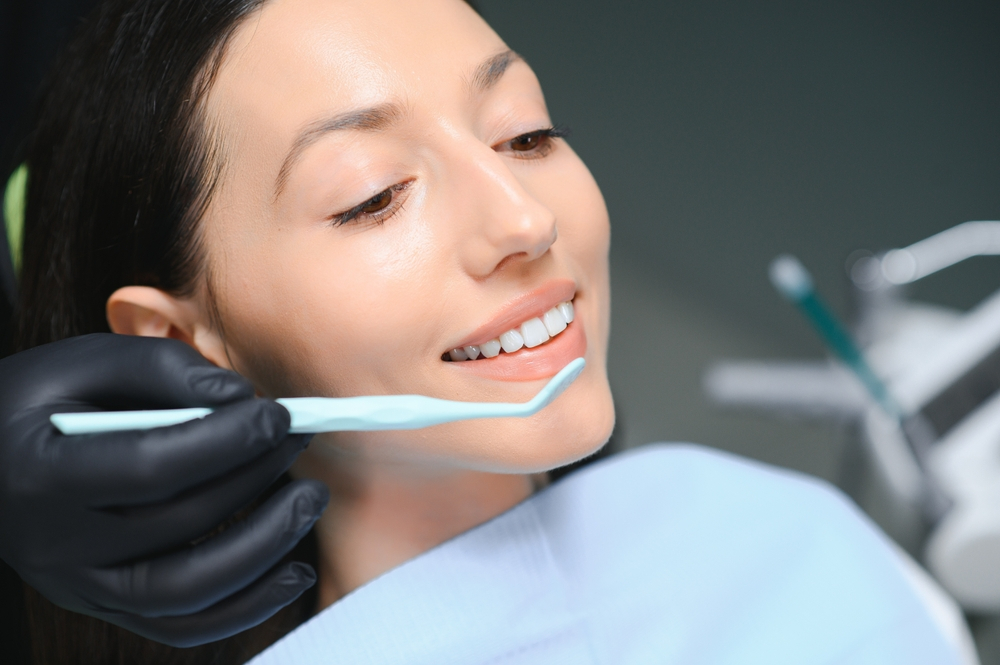Dentistry and dental hygiene are integral components of maintaining optimal oral health. These fields intersect to ensure healthy smiles, prevent dental issues, and enhance overall well-being. Let’s explore the roles of dentists and dental hygienists, their differences, and the importance of regular visits.
Table of Contents
ToggleThe Dentist’s Domain
Dentists are skilled professionals who diagnose, treat, and manage various oral health conditions. Here’s what they do:
Diagnosis and Treatment:
Dentists identify dental problems such as cavities, gum disease, and oral infections. They create personalised treatment plans, which may involve fillings, root canals, crowns, and more.
Preventive Care: Dentists emphasise preventive measures to maintain oral health. Regular check-ups, cleanings, and patient education are essential.
Restorative Procedures: Dentists repair damaged teeth (e.g., fillings) and replace missing teeth (crowns, bridges, implants).
The Role of Dental Hygienists
Dental hygienists complement dentists by focusing on preventive care and patient education:
Routine Cleanings and Education: Hygienists perform professional teeth cleanings, removing plaque, tartar, and stains. They educate patients on proper brushing, flossing, and diet.
Assessing Oral Health: Hygienists examine teeth, gums, and overall oral health. Early detection helps prevent complications.
Key Differences – Dental Hygienist vs Dentist
Education and Scope: Dental hygienists complete a two-year associate degree program. Dentists undergo a four-year doctoral program (DDS or DMD).
Independence: Hygienists work under dentists’ supervision. Dentists operate independently, making clinical decisions.
Career Paths: Hygienists can pursue advanced degrees. Dentists specialise in various fields (orthodontics, surgery).
Thus, both dentists and dental hygienists contribute significantly to maintaining healthy smiles. Regular visits to both professionals ensure your oral health remains top-notch. Remember, a beautiful smile begins with excellent dental care!
What Is a Dentist?
A dentist is a licensed healthcare professional who specialises in diagnosing, preventing, and treating conditions affecting the teeth, gums, and mouth. Their role is crucial in promoting oral health and hygiene, as well as maintaining the overall well-being of their patients. Here are some key aspects of what dentists do:
Diagnosing Oral Health Conditions: Dentists conduct thorough examinations of patients’ teeth, gums, and mouth to assess their oral health status. They use various diagnostic tools such as X-rays, visual inspections, and patient histories to identify dental issues like cavities, gum disease, oral infections, and abnormalities.
Preventive Care: Dentists emphasise the importance of preventive dental care. They provide guidance on proper oral hygiene practices, including brushing, flossing, and diet. Routine cleanings, fluoride treatments, and dental sealants help prevent tooth decay, gum disease, and other oral health problems.
Treatment Planning: Based on their diagnosis, dentists develop individualised treatment plans tailored to each patient’s oral health needs and goals. They discuss treatment options, explain procedures, and address any concerns to ensure informed decision-making.
Restorative Procedures: Dentists perform various restorative procedures to repair or replace damaged or missing teeth. These may include filling cavities, performing root canals, placing crowns or bridges, and fitting dentures or dental implants.
What Is a Dental Hygienist?
A dental hygienist is another essential member of the dental team. They work alongside dentists to help patients maintain good oral health and dental hygiene. Here’s what dental hygienists do:
Routine Cleanings and Care: Dental hygienists use appropriate dental instruments to perform routine cleanings, removing plaque, tartar, and stains from patients’ teeth.
Assessing Oral Health: They examine the teeth and gums, take X-rays, and collect medical histories to assess patients’ oral health.
Educating Patients: Dental hygienists educate patients on proper oral care, emphasising preventive measures like brushing, flossing, and diet.
Education and Training
To become a dental hygienist, you’ll need to graduate from an accredited dental hygiene program and obtain state licensure. Dental hygienists can also pursue further education, including bachelor’s and master’s degrees. Some states offer the option to become dental therapists with additional training.
For those aspiring to become dentists, the path involves obtaining a bachelor’s degree followed by a four-year doctoral program (either Doctor of Dental Surgery or Doctor of Dental Medicine). After completing the program, dentists must pass the necessary dental board exams to become licensed practitioners.
Roles and Responsibilities of Dental Hygienists
Dental hygienists play a crucial role in maintaining oral health and preventing dental issues. Here are the primary dental hygienist roles and responsibilities:
Routine Cleanings and Care: Dental hygienists perform professional teeth cleanings, removing plaque, tartar, and stains. They educate patients on proper brushing and flossing techniques.
Assessing Oral Health: They examine patients’ teeth and gums, take X-rays, and assess overall oral health. Early detection of dental problems allows for timely intervention.
Patient Education: Dental hygienists educate patients about oral hygiene practices, diet, and lifestyle choices. They emphasise preventive measures to maintain healthy teeth and gums.
Roles and Responsibilities of Dentists
Dentists are highly trained professionals who diagnose, treat, and manage various oral health conditions. Here’s what dentists do:
Diagnosis and Treatment: Dentists diagnose dental issues such as cavities, gum disease, and oral infections. They create treatment plans tailored to each patient’s needs, which may include fillings, root canals, crowns, and more.
Preventive Care: Dentists emphasise preventive measures to maintain oral health. Regular check-ups, cleanings, and patient education are essential components.
Restorative Procedures: Dentists perform restorative treatments to repair damaged teeth (e.g., fillings) and replace missing teeth (crowns, bridges, implants).
Key Differences Between Dental Hygienists and Dentists
Education and Training: Dental hygienists typically complete a two-year associate degree program. Dentists complete a four-year doctoral program (either Doctor of Dental Surgery or Doctor of Dental Medicine).
Scope of Practice: Dental hygienists focus on preventive care, cleanings, and patient education. Dentists have a broader scope, including diagnosis, treatment planning, and performing complex procedures.
Independence: Dental hygienists work under the supervision of dentists. Dentists operate independently and make clinical decisions.
Career Advancement: Dental hygienists can pursue further education for career growth. Dentists can specialise in various fields (e.g., orthodontics, oral surgery).
Remember, both the dental hygienist duties and responsibilities as well as those of dentists, significantly contribute significantly to maintaining your smiles healthy and shiny!
When to Visit a Dentist:
Regular Check-Ups:
Frequency: It’s recommended to visit a dentist for regular check-ups every six months.
Purpose: Dentists perform comprehensive examinations, including X-rays, to assess your oral health. They check for cavities, gum disease, oral cancer, and other issues.
Treatment: Dentists address any existing dental problems and create personalised treatment plans.
Specific Dental Issues:
Pain or Discomfort: If you experience tooth pain, sensitivity, or discomfort, schedule an appointment with a dentist promptly.
Emergency Situations: For dental emergencies (e.g., broken tooth, severe pain, knocked-out tooth), seek immediate dental care.
Restorative Procedures:
Dentists handle restorative treatments such as fillings, crowns, root canals, and extractions.
If you need a dental procedure beyond routine cleanings, consult a dentist.
When to Visit a Dental Hygienist:
Routine Cleanings:
Frequency: Dental hygienists perform routine cleanings every six months or as recommended by your dentist.
Purpose: Hygienists remove plaque, tartar, and stains from your teeth. They also provide valuable oral hygiene education.
Maintenance: Regular cleanings help prevent gum disease and maintain overall oral health.
Maintenance Appointments:
If you have healthy teeth and gums, consider scheduling appointments with a dental hygienist for maintenance.
They reinforce proper brushing and flossing techniques and help you maintain a healthy smile.
Conclusion:
In summary, both dentists and dental hygienists play essential roles in your oral health journey. Dentists (such as a dentist in Charlestown) handle diagnosis, treatment planning, and complex procedures, while dental hygienists focus on preventive care and routine cleanings. Remember to follow your dentist’s recommendations for regular check-ups and hygiene appointments to keep your smile shining bright!
FAQs
Yes, it’s essential to see both a dentist and a dental hygienist. Here’s why:
Dental Hygienist:
Role: Dental hygienists focus on preventive care, routine cleanings, and patient education.
Cleanings: They remove plaque, tartar, and stains from your teeth during regular cleanings.
Education: Hygienists provide valuable tips on brushing, flossing, and maintaining oral hygiene.
Frequency: You should visit a dental hygienist every six months or as recommended by your dentist.
Dentist:
Comprehensive Care: Dentists provide comprehensive oral health care beyond cleanings.
Diagnosis: They diagnose dental issues (cavities, gum disease, oral infections) and create treatment plans.
Restorative Procedures: Dentists handle restorative treatments (fillings, crowns, root canals).
Collaboration: Dentists work with specialists and ensure overall oral health.
Thus, regular visits to both professionals ensure a healthy smile. Dental hygienists maintain hygiene, while dentists address broader oral health needs.
Generally, you should visit a dental hygienist every six months. However, individual needs may vary based on factors like oral health, risk factors, and your dentist’s recommendation. Regular cleanings help prevent gum disease and maintain overall oral health.
Dental hygienists primarily focus on preventive care, cleanings, and patient education. While they assist dentists during procedures (e.g., administering anaesthesia), they do not perform complex dental procedures independently. Dentists handle diagnosis, treatment planning, and restorative work.
Remember, a balanced approach—seeing both a dentist and a dental hygienist—ensures optimal oral health!

Dr David Sweeney
For over 20 years, David has been practising dentistry with positive documented results. When establishing Your Smile, he wanted an environment where patients would feel comfortable and relaxed as soon as they walked in. He treats everyone like a family member and has the ability to make everybody feel at ease.






